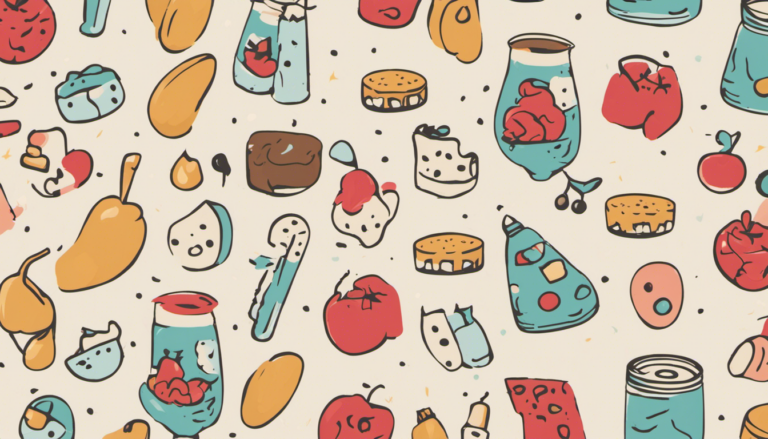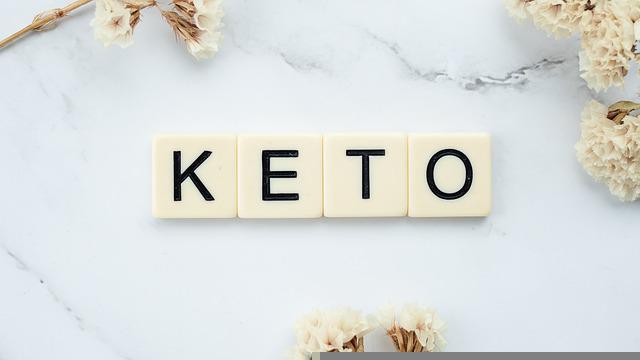Mental Health and Diet: How what you eat can affect your mood and mental well-being.
When sunshine rays tickle your eyelids in the morning, your hand instinctively reaches out for the day’s first cup of latte with the perfect dollop of whipped cream and a dusting of cocoa powder. As the day dips under the horizon, a plate of peace descends with your favorite comfort food, binding your tired day into a bundle of joy. Have you ever wondered how this loyal relationship between your plate and your mood exists? Or how the food painted on your palette can palette your brain’s canvas with different shades of feelings? Welcome, dear readers, as we take a culinary journey through the neural pathways. This article will explore the profound relationship between your mental health and the food you consume, unraveling how every crunch, sip, and bite can sculpt your mood, emotions, and overall well-being. Get ready to convey your senses into the flavorful, nutritious, yet often overlooked world where diet meets mental health.
Table of Contents
- Understanding the Connection between Food and Mood
- The Science Behind Nutritional Psychiatry: Nourish your Brain, Elevate your Mind
- The Impact of Diet on Mental Health: A Deep Dive into Key Nutrient Groups
- Creating a Mood-Boosting Meal Plan: Expert Recommendations for Mental Well-being
- Q&A
- Final Thoughts
Understanding the Connection between Food and Mood
Frequently, we think of food in terms of physical health; more specifically how it helps to maintain a healthy weight, control blood sugar or prevent heart diseases. But have you ever stopped to consider how your diet impacts your mental health? There exists a complex relationship between what we eat and how we feel, often coined as the Food-Mood connection. It’s the fascinating insight of nutritional psychiatry: a scientific field exploring how foods can affect our mental health. This includes our emotional well-being, brain development, and the prevention and management of mental health disorders.
Some foods have the ability to boost our mood by influencing the body’s production of ‘feel-good’ chemicals, such as serotonin and dopamine. For example, carbohydrates found in whole grains, fruits, vegetables, and legumes enhance serotonin production which has a calming effect. Foods rich in omega-3 fatty acids – such as fatty fish, flaxseed, and walnuts – assist in boosting dopamine levels, promoting alertness and motivation. On the other hand, a diet high in processed foods, sugar and saturated fat can negatively impact brain health, trigger mood swings and intensify the symptoms of depression and anxiety. Recognizing the link between your diet and mood paves the way for more effective mental health management. This is facilitated by:
- Following a balanced, nutrient-rich diet.
- Limiting the intake of sweets and processed foods.
- Incorporating mood-boosting foods into your daily meals.
The Science Behind Nutritional Psychiatry: Nourish your Brain, Elevate your Mind
Nutritional psychiatry is a rapidly growing field, highlighting the significant connection between diet, mood, and overall mental well-being. The brain, like any other organ in the body, requires essential nutrients to function correctly. Recent scientific research has cemented the idea that the things we consume can heavily influence our moods and mental health, emphasizing the integral role diet plays in mental health management. Interestingly, certain foods show a direct correlation with specific mental health conditions.
The complex relationship of your gut and brain, also known as the gut-brain axis, is fundamental to understanding nutritional psychiatry. Science has discovered that the gut-brain axis is bidirectional – meaning your gut can send signals to your brain and vice versa. Hence, a balanced diet not only keeps your body healthy but also promotes mental health. Let’s look at a few diet contributions:
- Omega-03 Fatty Acids: These help in building brain cell membranes and stimulating new brain cell formation. They are known for their potential in reducing depressive symptoms.
- Probiotics: Regular intake of probiotics can positively affect gut health, which, in turn, enhances mood and cuts stress.
- Complex Carbohydrates: They gradually release glucose into your system, giving you a consistent energy level, impacting your mood positively.
Remember, the path to improved mental well-being might well be through your stomach – a well-balanced, nutritional diet. But it’s essential to advocate a holistic approach – combining a balanced diet with regular exercise, good sleep hygiene, standard medical treatments, and psychotherapies when needed. Embrace nutritional psychiatry, nourish your brain, and elevate your mental health!
The Impact of Diet on Mental Health: A Deep Dive into Key Nutrient Groups
It’s not an unknown fact that your diet significantly drives your physical health; however, a lesser-known truth is the influence of dietary habits on mental well-being. What ends up on your plate not only impacts your waistline but also plays a pivotal role in shaping your mood, cognitive functioning, and overall mental health. An imbalanced intake of key nutrient groups could result in a spectrum of mental disorders, including depression, anxiety, ADHD and more.
Focusing particularly on nutrient groups, let’s float the spotlight on the Fatty Acids, Vitamins, and Minerals.
- Fatty Acids: Essential fatty acids like Omega-3 and Omega-6, primarily found in fatty fish, walnuts, and flaxseeds, are known to enhance cognitive functioning and mood. Research indicates that people with deficiencies in these fatty acids are at a higher risk for mood disorders.
- Vitamins: Key vitamins like B-complex, C, D, and E also support mental health. B-vitamins, particularly B6, B9 (folic acid), and B12, are instrumental in the production of chemicals in your brain that influence your mood and other brain functions. Meanwhile, low levels of Vitamin D have been linked with mood disorders, including depression and schizophrenia.
- Minerals: Certain minerals like Magnesium, Zinc, and Iron also govern a healthy brain. A deficiency in any of these can contribute to anxiety and mood swings, and a lagging attention span.
In short, maintaining a diet rich in all these nutrients broadens the path toward improved mental wellness. Ensure you have a balanced diet that adequately covers all these nutrient groups and witness the difference in your mental well-being.
Creating a Mood-Boosting Meal Plan: Expert Recommendations for Mental Well-being
Did you know that the food you consume can significantly impact your mood and mental health? It is indeed true! A well-balanced, nutrient-rich diet can boost your mood and help in dealing with daily stresses, while constantly relying on junk and processed food can act as a downer. According to dietitians and mental health experts, certain types of foods can contribute to a variety of mental health conditions, such as depression, anxiety, ADHD, and even schizophrenia.
Omega-3 Fatty Acids: One of the key components of mood-boosting meals is Omega-3 fatty acids. These essential nutrients are known for their brain-boosting powers, research has linked them to reduced depression and anxiety. Seafood, flaxseeds, chia seeds, walnuts, and fortified eggs are excellent sources.
- Whole Grains: Opting for whole grains can provide sustained energy and balance your mood. Foods, such as brown rice, oats, and whole wheat bread, are rich in complex carbohydrates which increase the production of serotonin, otherwise known as your happy hormone.
- Lean Protein: High-quality, lean protein can keep your mind sharp, help regulate your mood, and even combat depression. Lean meats, eggs, yogurt, and beans can provide this beneficial nutrients.
- Leafy Greens: Nutrient-dense and brimming with vital vitamins, leafy greens such as spinach, kale, and broccoli can significantly contribute to mental well-being. They are rich in vitamin B which has uplifting effects on the mood.
Note that while diet plays a significant role in mental health, it’s not the only factor. Regular exercise, adequate sleep, and a positive outlook also contribute significantly to maintaining mental well-being. But starting with a mood-boosting meal plan, is a great step towards a happier and healthier life.
Q&A
Q: What is the connection between diet and mental health?
A: A growing body of research suggests that what we eat can significantly influence our thoughts, moods, and overall mental well-being. Our diet not only nourishes our body, but it also provides essential nutrients to our brain.
Q: Can you name any specific foods that can improve our mental health?
A: Certainly! Omega-3 fatty acids in foods like salmon and walnuts are known for promoting brain health. Other foods such as green tea and dark chocolate have been found to help reduce anxiety and depression. Fruits, vegetables, lean proteins, and whole grains are also beneficial for their rich supply of essential nutrients.
Q: Is there any negative effect of consuming certain foods on mental health?
A: Yes. Foods high in sugar, sodium, and unhealthy fats have been linked to a variety of mental health issues, including depression, anxiety, and even an increased risk of dementia. Excessive consumption of alcohol and caffeine can also have negative effects on one’s mood and mental health.
Q: How does the relationship between diet and mental health work?
A: The food we consume affects the structure and function of our brain and, ultimately, our mood. Certain nutrients in food are essential for the brain to function properly. For instance, carbohydrates increase serotonin, a hormone that has a calming effect, while proteins can boost alertness and concentration.
Q: How exactly can my diet affect my mood?
A: Certain foods can trigger the release of neurotransmitters such as dopamine and serotonin, which can make you feel happier. On the other hand, a diet high in sugar and processed foods can cause fluctuations in your blood sugar levels, which can make you feel moody or irritable.
Q: Can adopting a healthy diet cure mental health disorders?
A: A nutritious diet can certainly contribute to overall mental well-being, but it’s not a cure-all. Mental health disorders are complex, and they often require a multi-faceted approach, including therapy, medication, and lifestyle changes. However, just as maintaining a healthy diet is good for physical health, it’s also beneficial for our psychological well-being.
Q: Choosing healthy foods can be challenging. Any recommendations?
A: The key is to make small, steady changes. Start by reducing processed foods and adding more fruits and vegetables to your diet. Try new healthy recipes, opt for whole grains, and include lean proteins. It’s not about deprivation; it’s about making more nutritious choices.
Q: Are there certain diets known to promote better mental health?
A: Yes. Diets such as the Mediterranean and DASH (Dietary Approaches to Stop Hypertension) diets, which emphasize fruits, vegetables, whole grains, lean proteins, and healthy fats, are often recommended for their benefits to mental health. But nothing substitutes for a custom approach, tailored to an individual’s unique needs and circumstances.
Q: How can I maintain mental well-being through diet amidst a busy schedule?
A: Plan your meals ahead, go for easy-to-cook, healthy recipes, and make sure to hydrate well. Make healthy snacks readily available and try to balance your plate with wholesome ingredients at every meal. It is important to remember that nourishing your body also means nourishing your mind.
Q: How soon can I expect results after modifying my diet for better mental health?
A: It’s important to remember that changes in the diet impact mental health over a period of time and not overnight. It is a gradual process, and patience is key. It’s a long-term investment for the overall health of your brain and body. If you’re struggling with serious mental health issues, always consult with a healthcare professional.
Final Thoughts
In this vast mosaic of our existence, it is quite evident that the foods we choose as fuel source transcend beyond physical dimensions. They thread subtly into the abstract world of thoughts and emotions – painting our moods with the vivid colors of tranquility or anxiety, happiness or despair. This intricate relationship between our plate and our mental state is no mere coincidence but a significant testimony of nature and its profound connections. Awareness and understanding the bond between our diet and mental health are like keys, able to unlock a door towards a world of fulfilling emotional equilibrium. As you journey into the future, remember, it’s not just food for your body, but food for your brain, your heart, and indeed, your soul. Balance your plate, balance your mood! Enjoy conscious eating and embrace mental well-being – because, in the exquisite wisdom of food, you just might discover the hitherto elusive harmony between mind, body, and spirit.







